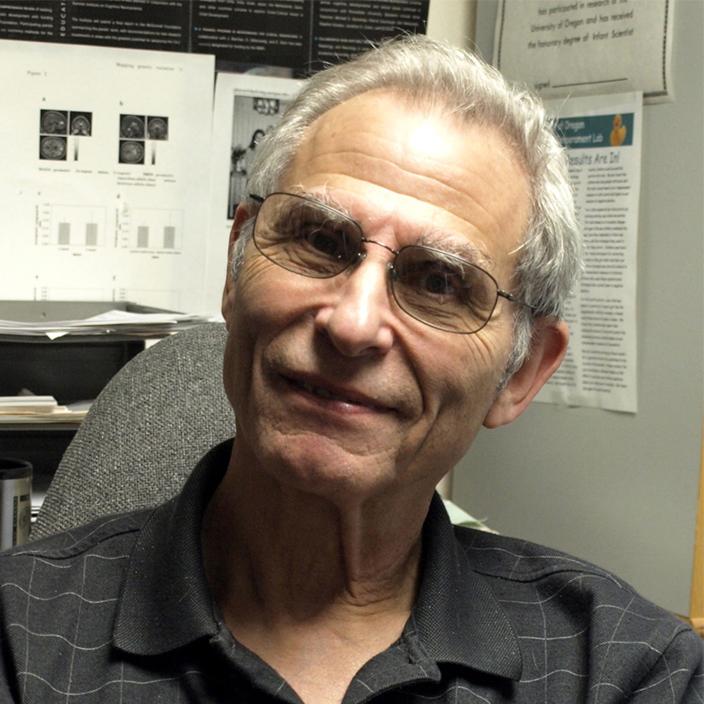
Michael Posner has said that a better understanding of the human mind requires two things—the measurement of mental events and the mapping of those events to brain networks. During his career, Posner worked on both problems. The methods he established for measuring brain networks have been revolutionary, and have now been applied to the exploration of a wide range of neurological, psychiatric, and developmental disorders, as well as to the understanding of typical development. He and his collaborators helped reveal that the brain is composed of distinct areas that work together to execute different attentional tasks, such as achieving an alert state, focusing on a stimulus, and moderating conflicts during simultaneous demands for attention. Posner traced the origins of our attentional neural networks back to infancy and wrestled with how cognitive function is determined by the interactions of genetics and environment. His research also has applied value for educators, giving us evidence on best practices for engaging students in the classroom.
Posner began his career as an assistant professor of psychology at the University of Wisconsin in 1962, where he studied attention by measuring the time necessary for a subject to name letter combinations. Contrary to the assumption that we learn to associate “A” and “a” and treat them as the same letter, he found that people took longer to match an “Aa” combination compared to “AA”. He concluded that the delay was due to the sequence of mental processes that humans use to analyze the pairs.
Four years later, Posner moved to the University of Oregon, where he expanded his early studies on attention by using visual cues appearing in an empty background as a way to drive attentional shifts. He and his lab discovered that these cues could improve reaction time in the absence of any overt eye movement. Posner hypothesized the existence of neural mechanisms responsible for orienting attention. Such a link between cognitive psychology and neurology seemed far-fetched at the time, though data from animal studies soon began to support the idea. To further explore this connection, and to gain valuable experience working with neurology patients and medical imaging, Posner trained with a renowned neurologist at the Memorial Sloan Kettering Cancer Center in New York City—his brother Jerry.
In 1988 Posner published a groundbreaking paper in Science, along with Marcus Raichle and colleagues, titled “Localization of Cognitive Operations in the Human Brain.” The seminal work validated growing excitement over the potential for the use of a diagnostic tool, the positron emission tomography (PET) scanner, as a method for rendering images of the brain in action. The group showed that it was possible to locate the neural structures involved in focusing one’s attention.
Posner’s continuing contributions to the understanding of how humans pay attention are unmatched. He has studied the anatomy, circuitry, and regulation of attention, as well as genes that can affect the attentional efficiency of an individual person. In 2007 he published Educating the Human Brain with Mary Rothbart, a book that applies the science of early childhood brain development and attentional networks to support improved learning outcomes in school.
Posner is the recipient of many awards, including John J. Carty Award for the Advancement of Science from the National Academy of Sciences and the National Medal of Science. In 2008, he became the first awardee of the Mattei Dogan Prize in Psychology, bestowed by the International Union of Psychological Science “in recognition of a contribution that represents a major advance in psychology by a scholar or team of scholars of high international reputation.” In addition, he received the Scientist of the Year Award in 1995 from the Oregon Academy of Sciences and has been recognized on multiple occasions for excellence in teaching.
Posner’s distinguished career, sparked by his aspirations to comprehend the human mind, has provided psychology with a profound depth of knowledge. His thorough pursuit of understanding human attention, coupled with the use of neuroimaging to unveil the brain’s intricacies, has shed light on one of humankind’s most important mysteries.
Information as of April 1, 2017

